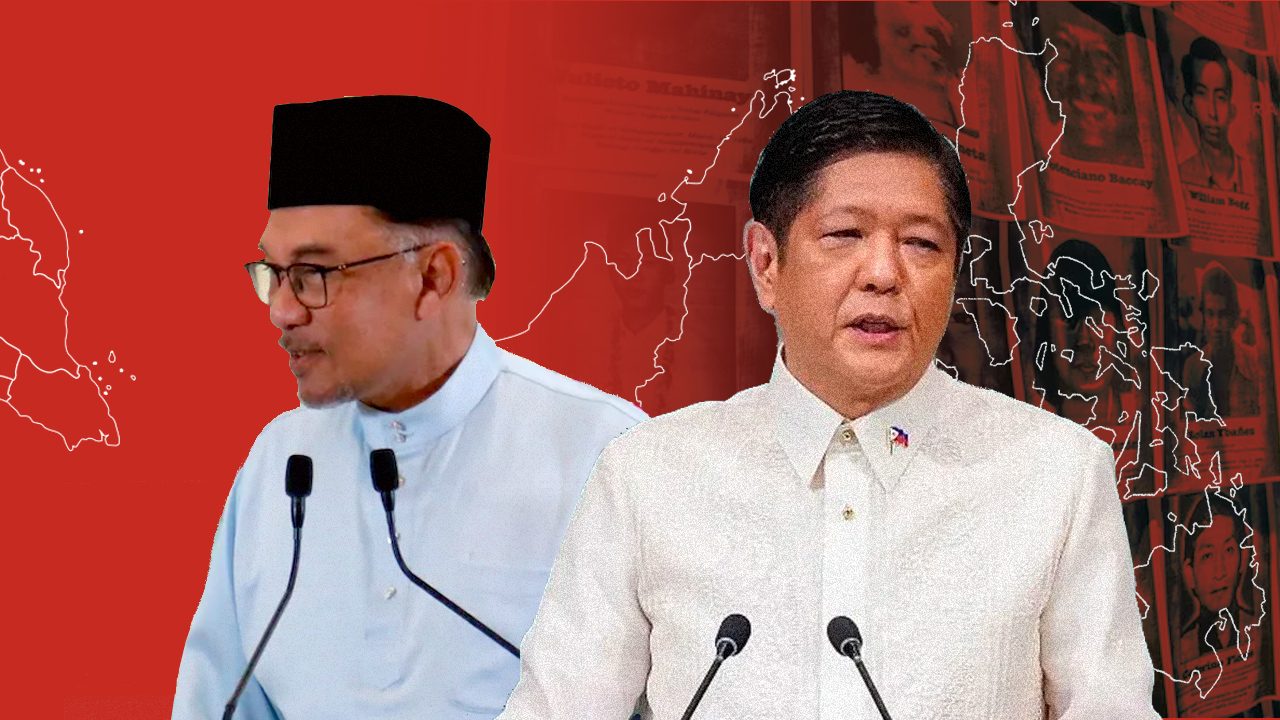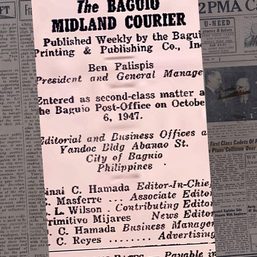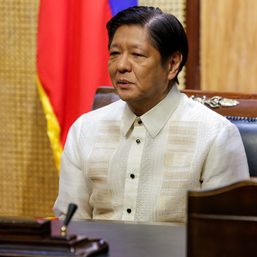SUMMARY
This is AI generated summarization, which may have errors. For context, always refer to the full article.

The year that is about to end is significant in one big way: It brought us the beginning of the Marcos presidency, marking the full restoration of the once-disgraced family. A lot has been written – and will still be written – about this epic moment in our history.
Let me contribute my thoughts.
Recently, Marcos likened himself to Malaysia’s newly elected prime minister, Anwar Ibrahim. He told Anwar in a telephone conversation that they shared something in common: they both waited for a very long time to get into the top position. Anwar’s rise to prime minister took all of 30 years while Marcos waited longer, 36 years.
But their similarities end there as their histories are so different. By comparing his political journey to Anwar’s, Marcos is putting a sheen on his lackluster life in politics, handed to him on a silver platter. His path was paved by privilege and entitlement, having a father who ruled the Philippines for two decades.
In contrast, Anwar started out as a student activist who became a protégé of longtime leader Mahathir Mohamad. But he was sent to prison, convicted of sodomy as a result of a political fallout, and eventually became opposition leader. He persisted in Malaysia’s turbulent politics and finally triumphed.
This is not the first time that Marcos spruced up his image using false historical narratives. This was evident during the presidential campaign when he harked back to the great era of his father.
Today, it has been six months since we’ve had a new president – and history is not on his side. In fact, it is his burden.
Yet, despite this, Marcos prevailed.
The comeback
When I was invited to speak at the University of California in San Diego (UCSD) last month, my hosts at the School of Global Policy and Strategy wanted me to discuss the return of the Marcoses. It was uppermost in their minds, apparently baffled, as many were, by the comeback of the son of a dictator who left dark and bitter memories in our country.
To begin with, it is useful to banish the thought that his return to the throne happened overnight. For the audience of academics, students and professionals at the UCSD, mostly Americans and Filipinos, I shared a timeline to show how, through the years, the Marcoses chipped away at the country’s memories, enabled by political leaders, propaganda and false stories.
The return of the Marcoses to national and local politics began just two years after Ferdinand Sr’s death when Imelda came home in 1991. A year later, Bongbong won as congressman in Ilocos Norte, the first position that a Marcos won after the People Power Revolt.
Thus began the long road to the presidency of Bongbong Marcos.
He then became governor of Ilocos Norte in 1998 and served for 9 years. Another stint in Congress came in 2007 when he took over from his sister, Imee, after which he made it to the Senate in 2010. Bongbong suffered a major loss in 2016 when he ran for vice president, but victory was his this year.
Along the way, the Marcoses gained some boost when the dictator’s body was allowed back in the country in 1993. However, a state burial was not allowed at the time.
The temper of the times changed in 2016 and this helped pave the way for the further acceptance of the Marcoses. The autocratic leader, President Duterte, allowed the late president’s remains to be buried in the Heroes’ Cemetery .
Why we got to where we are
By no means do the three factors I will cite give a complete explanation of the successful laundering of the Marcos image – but they give us an idea why we got to where we are.
First, our history books gloss over the dark years of Martial Law.
Second, Marcos’ association and alliance with former president Rodrigo Duterte.
Third, social media and disinformation.
Our history books. High school and college textbooks do not thoroughly discuss the Marcos years, what happened during Martial Law and the excesses of that dark period. Some millennials say they were not taught about Martial Law at all! I was utterly surprised to learn this.
This is what our past governments have neglected. They did not shape the history curriculum of our schools.
The association and alliance with President Duterte. Despite his autocratic rule, Rodrigo Duterte is the most popular president in post-Marcos history. He was a populist and projected himself as an anti-elite, a candidate who would bring change. His daughter, Sara, ran with Marcos as his vice president. She gave Marcos a lift as he was initially running second to her in the surveys. When she teamed up with him, Marcos’ numbers rose. They became a formidable team, backed by money, machinery, and political dynasties.
Social media. The Marcoses have cleverly used social media and other means to scrub their reputation. Earlier researches have shown that Facebook was the biggest enabler of disinformation, followed by YouTube and TikTok. A new study, “Influence Operations in the 2022 Philippine Elections,” found more: “The pro-Marcos political reality has been made possible by a well-funded, full-service media-information-fantasy complex capable of diversified content production….Rebranding the Marcos family from perpetrators of corrupt dictatorship to misunderstood public figures was paved slowly by lifestyle magazines…and turbocharged by social media across multiple election cycles…”
So, here we are, somewhat reeling from the jolt of 2022, with history lessons to ponder. – Rappler.com
Add a comment
How does this make you feel?



![[OPINION] If it’s Tuesday it must be Belgium – travels make over the Marcos image](https://www.rappler.com/tachyon/2024/04/tl-travel-makeovers-marcos-image.jpg?resize=257%2C257&crop_strategy=attention)


![[OPINION] Raised on radio](https://www.rappler.com/tachyon/2024/04/raised-on-radio.jpg?resize=257%2C257&crop=396px%2C0px%2C720px%2C720px)
![[Just Saying] Marcos: A flat response, a missed opportunity](https://www.rappler.com/tachyon/2024/04/tl-marcos-flat-response-april-16-2024.jpg?resize=257%2C257&crop=277px%2C0px%2C720px%2C720px)







There are no comments yet. Add your comment to start the conversation.